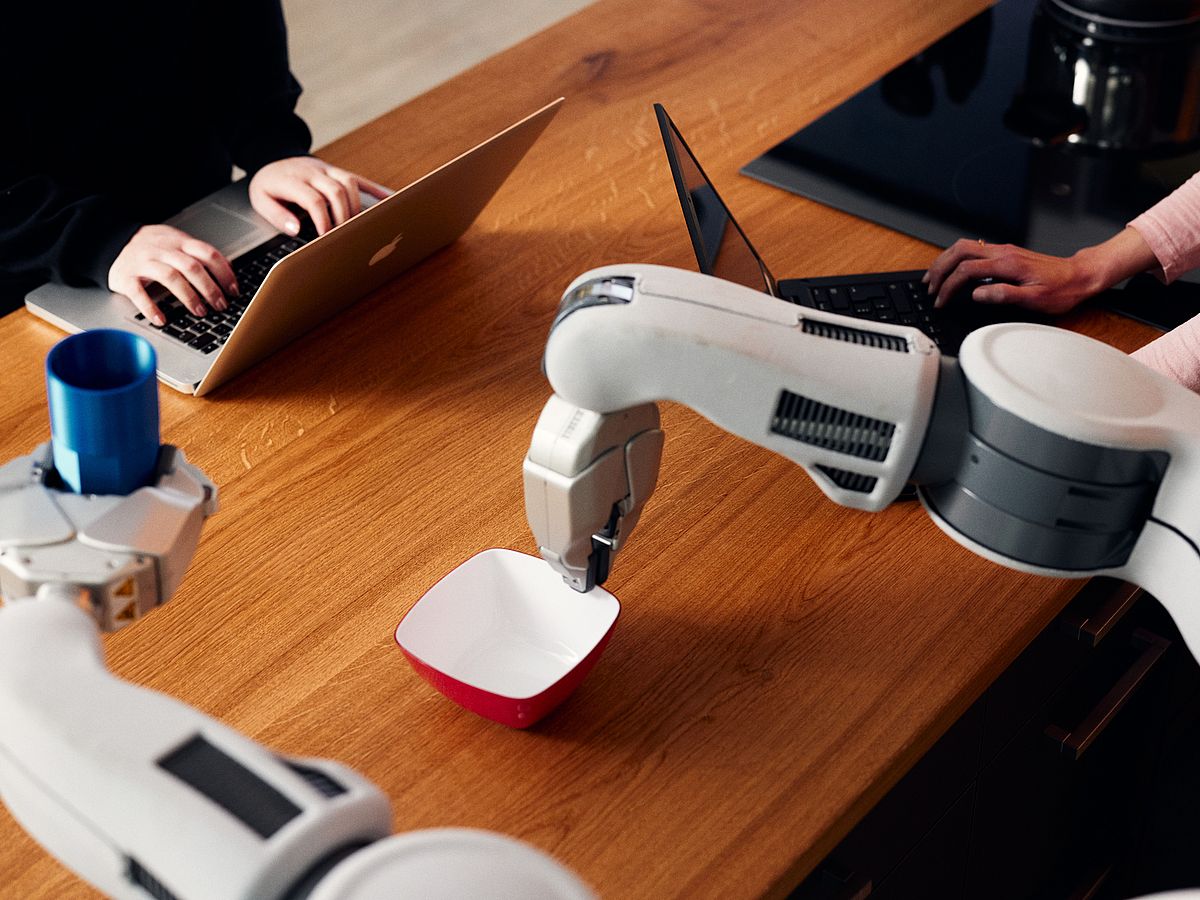Research

Research with Everyday Relevance
We are exploring the co-construction between humans and robots using an everyday example: joint activities in the kitchen. In the future, AI-based robots could help us with cooking or setting the table. This would be of enormous importance, especially for older and physically impaired people.
However, what sounds like simple tasks at first, often poses major challenges for today's robots: Stovetops are hot and glasses are fragile - what we humans learn as children, robots also have to learn. We humans intuitively understand that water flows faster than cake batter - robots do not yet have intuition.
And it takes a lot more than that to be able to apply this knowledge correctly: some people like butter with their jam sandwich, others don't. And a candlelit dinner needs to be prepared differently to an everyday breakfast. For robots to be able to support us flexibly in such scenarios, they not only need factual knowledge about their environment, but also the ability to develop an intelligent understanding of their environment, their tasks. and the consequences of their actions together with humans.
Virtual Research and Teaching Building (ViB)
Experience Our Research Virtually
We want to bring cognition-based and cooperative AI to life: In our Virtual Research and Teaching Building (ViB), interested laypersons can learn the basics of AI, AI-based robotics, and co-construction. School pupils and students can access in-depth teaching materials. Furthermore, researchers across the globe have virtual access to our research infrastructure and can conduct their own studies using our systems.
The building is under construction and will continue to evolve steadily. For more information on the CoAI ViB and a first look at its floors, visit it on the CoAI JRC website.
